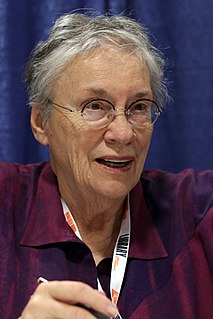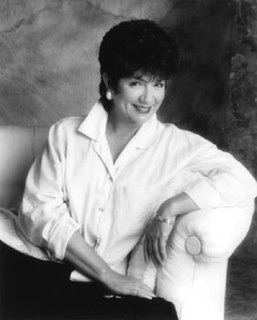A Quote by Annie Proulx
It is my feeling that a story is not finished until it is read, and that the reader finishes it through his or her life experience, prejudices, worldview and thoughts.
Quote Topics
Related Quotes
The writer's job, after all, is not to dictate meaning, but to give the reader enough pieces to create his or her own satisfying meaning. The story is truly finished—and meaning is made—not when the author adds the last period, but when the reader enters the story and fills that little ambiguous space, completing the circuit, letting the power flow through.
What really grabs me is when a reader writes to express her personal story and how a book helped her situation, or her acceptance of a situation she can't change. I read some sad cases in my snail and electronic mail. I respond to all I can, affirming that they are the true heroes of life because they are fighting through adversity and surviving.
The book is finished by the reader. A good novel should invite the reader in and let the reader participate in the creative experience and bring their own life experiences to it, interpret with their own individual life experiences. Every reader gets something different from a book and every reader, in a sense, completes it in a different way.
The poet presents the imagination with images from life and human characters and situations, sets them all in motion and leaves itto the beholder to let these images take his thoughts as far as his mental powers will permit. This is why he is able to engage men of the most differing capabilities, indeed fools and sages together. The philosopher, on the other hand, presents not life itself but the finished thoughts which he has abstracted from it and then demands that the reader should think precisely as, and precisely as far as, he himself thinks. That is why his public is so small.
Mindi Scott has a real talent for getting inside her protagonist's head. She sketches out Coley's story in grand swathes, and then paints in all the little details, so that you feel as though you are enmeshed in Coley's brain: thinking her thoughts, feeling her confusion, anger, and, in the end, pain. I just don't think it's possible to read this book and not identify with Coley in some way.
I’ve always believed that as an author, I do 50% of the work of storytelling, and the reader does the other 50%. There’s no way I can control the story you tell yourself from my book. Your own experiences, preferences, prejudices, mood at the moment, current events in your life, needs and wants influence how you read my every word.
When I read the script of 'Karu,' there was a spark within, and I instantly connected with the story. I was emotionally attached to the story. After we finished shooting, I was so attached to the kid who played my daughter, I wanted to adopt her. That's how strong my emotional attachment was with the role and the story.
My mother lived her life through movies and books - she read everything there was to read. And she read to me every night. I never went to sleep without her reading to me. And she fantasized about the book and she would talk about it, the place, and you would think that after she read the book and after she told you stories about it, that she had actually been there. I learned about story from her, and I learned the value of a great story, and the value of great characters.







































